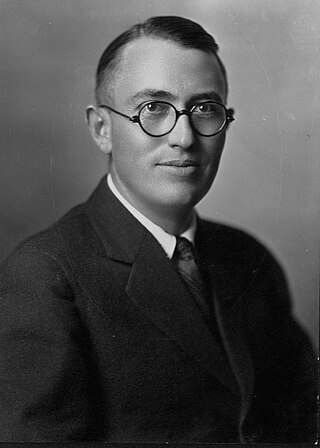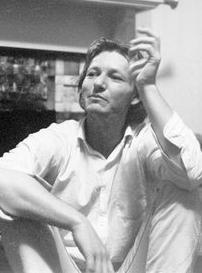
Father Damien or Saint Damien of Molokai or Saint Damien De Veuster, born Jozef De Veuster, was a Roman Catholic priest from Belgium and member of the Congregation of the Sacred Hearts of Jesus and Mary, a missionary religious institute. He was recognized for his ministry, which he led from 1873 until his death in 1889, in the Kingdom of Hawaiʻi to people with leprosy, who lived in government-mandated medical quarantine in a settlement on the Kalaupapa Peninsula of Molokaʻi.

Molokai is the fifth most populated of the eight major islands that make up the Hawaiian Islands archipelago in the middle of the Pacific Ocean. It is 38 by 10 miles at its greatest length and width with a usable land area of 260 sq mi (673.40 km2), making it the fifth-largest in size of the main Hawaiian Islands and the 27th largest island in the United States. It lies southeast of Oʻahu across the 25 mi (40 km) wide Kaʻiwi Channel and north of Lānaʻi, separated from it by the Kalohi Channel.

Punahou School is a private, co-educational, college preparatory school for both boys and girls in Honolulu, Hawaii. More than 3,700 students attend the school from kindergarten through 12th grade. The school was established by Protestant missionaries in 1841.
Hawaiian literature has its origins in Polynesian mythology. It was originally preserved and expanded solely through oral traditions, as the ancient Hawaiians never developed a writing system. Written literature in the Hawaiian language and literary works in other languages by authors resident in Hawaii did not appear until the nineteenth century, when the arrival of American missionaries introduced the English language, the Latin alphabet, and Western notions of composition to the kingdom.
Lois-Ann Yamanaka is an American poet and novelist from Hawaiʻi. Many of her literary works are written in Hawaiian Pidgin, and some of her writing has dealt with controversial ethnic issues. In particular, her works confront themes of Asian American families and the local culture of Hawaiʻi.

Lawrence McCully Judd was a politician of the Territory of Hawaii, serving as the territorial governor. Judd is most well-known for his role in the Massie Affair, in which he commuted the sentence of three people convicted of manslaughter in the killing of Josef Kahahawai.

Kalaupapa is a small unincorporated community and Hawaiian home land on the island of Molokaʻi, within Kalawao County in the U.S. state of Hawaii. In 1866, during the reign of Kamehameha V, the Hawaii legislature passed a law that resulted in the designation of Molokaʻi as the site for a leper colony, where patients who were seriously affected by leprosy could be quarantined, to prevent them from infecting others. At the time, the disease was little understood: it was believed to be highly contagious and was incurable until the advent of antibiotics. The communities where people with leprosy lived were under the administration of the Board of Health, which appointed superintendents on the island.
Marc R. Alexander is a Roman Catholic priest of the diocese of Honolulu. Prior to February 1, 2006, he served the diocese as diocesan theologian and pastor of a clustered parish known as the Manoa-Punahou Catholic Community.

Kirby Doyle, born Stanton Doyle, was an American poet. He was featured in the New American Poetry anthology, with the so-called "third generation" of American modernist poets. He was one of the San Francisco Renaissance poets who laid the groundwork for Beat poetry in San Francisco. Doyle also wrote novels.
Alan Brennert is an American author, television producer, and screenwriter. Brennert has lived in Southern California since 1973 and completed graduate work in screenwriting at the University of California, Los Angeles.
The Whiskeyhill Singers were an American folk revival group formed in early 1961 by Dave Guard after he left The Kingston Trio. Guard formed the Singers as an attempt to return to the Trio's earlier roots in folk music. The Singers lasted about six months before disbanding. During that short period the group released one album, Dave Guard & The Whiskeyhill Singers, and recorded a number of songs for the soundtrack of How the West Was Won, but only four of these were used in the movie.
Pam Chun is a writer and marketing consultant, most notable as the author of the book The Money Dragon.

Kirmen Uribe is a Basque language writer. He won the National Prize for Literature in Spain in 2009 for his first novel Bilbao-New York-Bilbao, which has been translated into over 15 languages. His poetry collection Meanwhile Take My Hand, translated into English by Elizabeth Macklin, was a finalist for the 2008 PEN Award for Poetry in Translation. His works have been published in The New Yorker, Open City and Little Star.

Rudolph Wilhelm Meyer (1826–1897) was a German who managed an early agricultural business in the Kingdom of Hawaii.

Thomas Centolella is an American poet and educator. He has published four books of poetry and has had many poems published in periodicals including American Poetry Review. He has received awards for his poetry including those from the National Poetry Series, the American Book Award, the Lannan Literary Award for Poetry and the Dorset Prize. In 2019, he received a Guggenheim Fellowship.

Lloyd Stone was an American poet best known for the poem "This Is My Song". Stone was also an illustrator and composer.
Nora Okja Keller is a Korean American author. Her 1997 breakthrough work of fiction, Comfort Woman, and her second book (2002), Fox Girl, focus on multigenerational trauma resulting from Korean women's experiences as sex slaves, euphemistically called comfort women, for Japanese and American troops during World War II and the ongoing Korean War.
Rodney Morales is an American fiction writer, editor, literary scholar, musician, and Professor in the Creative Writing Program of the Department of English at the University of Hawaii. In both his creative and critical writing, he is concerned with contemporary multi-ethnic Hawaii society, particularly social relations between its residents of Native Hawaiian, Japanese, Caucasian, and Puerto Rican descent; the 1970s "Hawaiian Renaissance" movement and the disappearance of its legendary cultural icon George Helm of Protect Kaho'olawe Ohana (PKO); and the postmodern juxtaposition of popular artistic forms with high literature. Shaped by genre fiction of the postwar period, his regional stories influenced that of Generation X/millennial authors such as Chris McKinney and Alexei Melnick, "urban Honolulu" novelists known for their gritty, realistic approaches to depicting crime, drugs, and lower-class life in the islands.

William DeWitt Alexander was an educator, author and linguist in the Kingdom of Hawaii and Republic of Hawaii. He then constructed maps for the Territory of Hawaii.
Marybeth Yuen Maul was the first Asian-American female magistrate in Hawaii. She also served as a Molokai District Court judge for the County of Maui. Maul died on April 23, 2010, in Eugene, Oregon, at 85 years old.










